Search Results
Showing results 1 to 20 of 91

Walk On Water Bugs
Source Institutions
In this activity (on pages 29-35), learners examine water pollution and filtration.
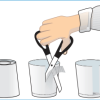
Cleaning Water with Dirt
Source Institutions
In this activity on page 7 of the PDF (Water in Our World), learners make their own water treatment systems for cleaning water.
Disappearing Water
Source Institutions
In this outdoor water activity, learners explore evaporation by painting with water and tracing puddles. Learners will discover that wet things become dry as the water evaporates.
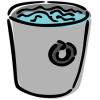
Water Exploration Station
Source Institutions
In this activity (located on page 3 of the PDF), learners investigate the way water moves and how we can control and direct water.

Water Treatment
Source Institutions
Water treatment on a large scale enables the supply of clean drinking water to communities.

Disappearing Crystals
Source Institutions
Learners experiment with water gel crystals, or sodium polyacrylate crystals, which absorb hundreds of times their weight in water. When in pure water, the water gel crystals cannot be seen.
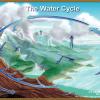
The Incredible Journey
Source Institutions
In this weather activity (page 4 of the PDF), learners will explore the water cycle through an interactive game.

Heat Capacity: Can't Take the Heat?
Source Institutions
Why is ocean water sometimes the warmest when the average daily air temperature starts to drop? In this activity, learners explore the differing heat capacities of water and air using real data.
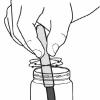
Salting Out
Source Institutions
In this activity, learners create a mixture of water, alcohol and permanent marker ink, and then add salt to form a colored alcohol layer on top of a colorless water layer.
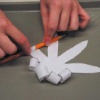
Moving On Up: Capillary Action II
Source Institutions
Learners explore capillary action in plants (such as plants ability to move water from roots to leaves) in an investigation called Paper Blooms.
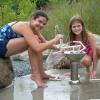
Measure the Speed of a Water Leak
Source Institutions
In this activity (page 2 of PDF under GPS: Glaciers Activity), learners will measure the rate at which water streams out of a leaky cup.
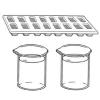
Sinking Water
Source Institutions
In this experiment, learners float colored ice cubes in hot and cold water.

Amazon Water Cycle Roleplay
Source Institutions
In this creative roleplay activity, learners will explore the various processes of the water cycle using movement, sound, and props to aid in comprehension.
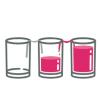
Walking Water
Source Institutions
In this activity, learners will be working with a sort of scientific magic, capillary action! They will set up 3 cups of water of different colors, connect them with paper towels and wait.
Making Rivers
Source Institutions
In this outdoor water activity, learners explore how to change the direction of water flow. Learners make puddles in dirt or use existing puddles and sticks to make water flow.
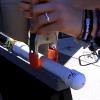
A Spray Spree
Source Institutions
In this activity, learners explore water pressure by conducting an experiment with a garden hose. Learners build a testing apparatus and create PVC nozzles with different sized holes.
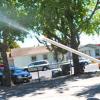
PVC Water Squirter
Source Institutions
In this activity, learners build a water squirter using a PVC pipe, dowel, and foam. This activity is great for the summer time and introduces learners to forces and water pressure.
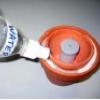
Cool It!
Source Institutions
Learners make a refrigerator that works without electricity. The pot-in-pot refrigerator works by evaporation: a layer of sand is placed between two terra cotta pots and thoroughly soaked with water.
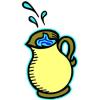
Aesop's Arithmetic
Source Institutions
In this activity (located on page 9 of the PDF), learners are introduced to Aesop's fable, "The Crow and the Pitcher." In the story, a clever crow drops pebbles into a pitcher to cause the water level
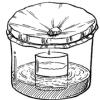
Rain Machine (Solar Still)
Source Institutions
In this activity, learners work in groups to build simple solar stills filled with salt water. After the stills are complete, learners observe what happens when they place the stills in the sun.
